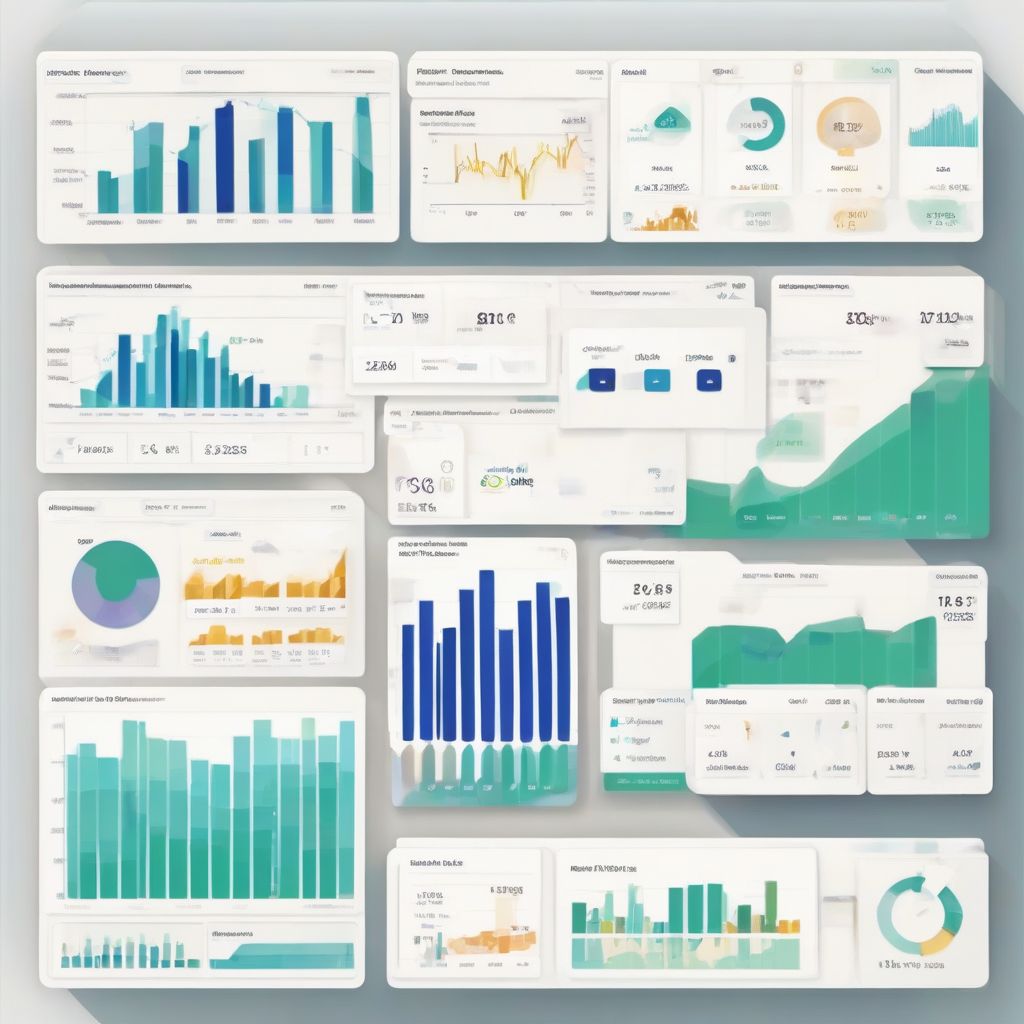The real estate industry is a dynamic and competitive field, constantly evolving with technological advancements. Today, staying ahead of the curve means leveraging the power of Software For Real Estate. This software encompasses a wide range of tools designed to streamline processes, enhance productivity, and ultimately drive success for real estate professionals, investors, and property managers alike.
Understanding the Power of Software For Real Estate
Whether you’re a seasoned realtor or just dipping your toes into the real estate waters, understanding the capabilities of real estate software is crucial. This software isn’t just about digitizing paperwork; it’s about gaining a competitive edge through data analysis, automation, and improved customer relationship management.
 Real estate software dashboard
Real estate software dashboard
Answering Your Burning Questions: FAQs About Real Estate Software
1. What are the different types of real estate software available?
The real estate software market is brimming with options, each catering to specific needs. Some popular categories include:
- Customer Relationship Management (CRM) Software: Designed to manage leads, track interactions, and automate marketing efforts, ultimately nurturing client relationships.
- Property Management Software: Streamlines tasks like rent collection, maintenance requests, tenant communication, and financial reporting, making property management a breeze.
- Real Estate Investment Software: Equips investors with tools for financial analysis, deal evaluation, and portfolio management, facilitating informed investment decisions.
- Virtual Tour Software: Allows potential buyers to experience properties remotely through interactive 3D tours, enhancing property marketing and expanding reach.
2. How can real estate software benefit me?
The benefits of incorporating real estate software are manifold, including:
- Increased Efficiency: Automate repetitive tasks, freeing up valuable time to focus on strategic initiatives.
- Enhanced Productivity: Manage multiple projects, properties, and clients seamlessly, boosting overall output.
- Data-Driven Insights: Gain access to real-time data and analytics, enabling informed decision-making.
- Improved Customer Experience: Provide clients with personalized experiences and exceptional service through streamlined communication and efficient processes.
3. What factors should I consider when choosing real estate software?
Selecting the right software requires careful consideration of your specific needs and requirements. Key factors to evaluate include:
- Features and Functionality: Ensure the software aligns with your specific business processes and desired outcomes.
- Ease of Use: Opt for an intuitive and user-friendly interface to minimize the learning curve and maximize adoption.
- Integrations: Choose software that integrates seamlessly with your existing tools and systems for streamlined workflows.
- Pricing and Scalability: Select a solution that fits your budget while offering the flexibility to scale as your business grows.
Choosing the Right Software For Real Estate: A Guide to Success
Navigating the vast landscape of real estate software can feel overwhelming. Here are some tips to streamline your search and make an informed decision:
- Identify Your Pain Points: Determine the specific challenges you face in your real estate operations, whether it’s lead generation, property management, or investment analysis.
- Research and Compare: Explore different software options, comparing their features, pricing, and user reviews.
- Request Demos and Trials: Take advantage of free trials or request demos to experience the software firsthand before committing.
- Seek Recommendations: Reach out to your network of real estate professionals for recommendations based on their experiences.
Beyond the Basics: Exploring Advanced Real Estate Software Capabilities
As technology continues to evolve, so too does the sophistication of real estate software. Cutting-edge features are emerging, pushing the boundaries of what’s possible in the industry.
- Artificial Intelligence (AI): AI-powered software can analyze vast amounts of data to identify market trends, predict property values, and automate tasks like lead qualification and property matching.
- Predictive Analytics: Leverage historical data and market trends to forecast future outcomes, such as rental demand, property appreciation, and investment risks.
- Blockchain Technology: Explore the potential of blockchain for secure and transparent property transactions, fractional ownership models, and enhanced data security.
The Future of Real Estate: Embracing Digital Transformation
The real estate industry is on the cusp of a digital revolution. By embracing the power of software for real estate, professionals and investors alike can unlock unparalleled opportunities for growth, efficiency, and success.
Investing in the right real estate software isn’t just a technological upgrade; it’s a strategic move that can transform your business, empower you with data-driven insights, and ultimately help you thrive in the ever-evolving world of real estate. Remember to thoroughly research your options, considering your unique needs and long-term goals, to choose the software that best aligns with your vision for success.